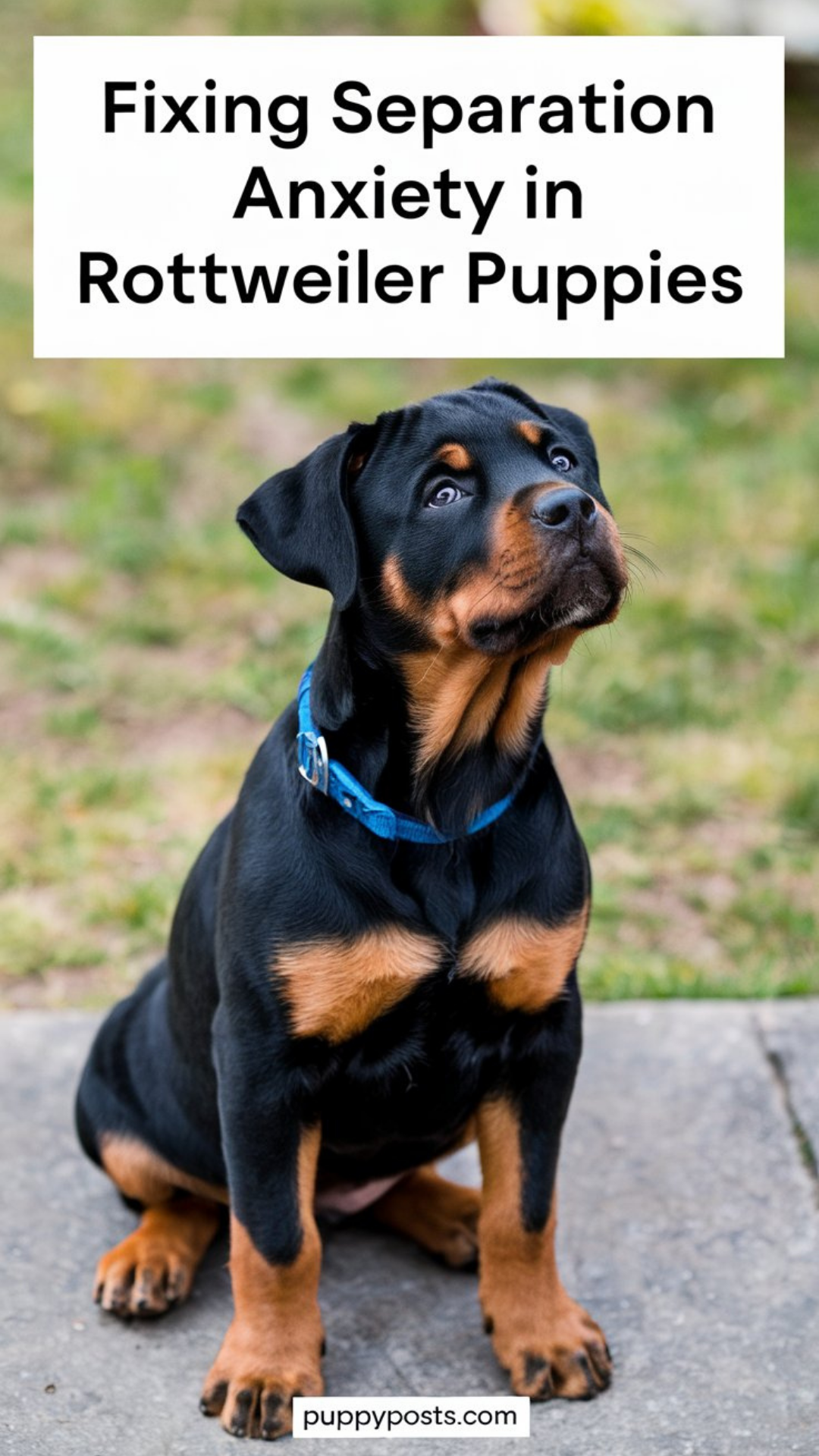Fixing separation anxiety in Rottweiler puppies
Alright, let’s cut to the chase. Rottweiler puppies are strong, smart, and loyal — but when separation anxiety shows up, it can turn your home upside down. I’ve worked with plenty of pups and seen how this problem tears at families. You don’t have to just live with it. You fix it, and you fix it right.
With over a decade as a veterinarian and running a sanctuary for stray dogs and cats, I’m telling you: separation anxiety in Rottweiler puppies demands a calm, consistent approach. No yelling. No quick fixes. Just solid, patient work.

Why Rottweiler Puppies Get Separation Anxiety
Rottweilers form deep bonds with their owners. When you walk out that door, your puppy feels vulnerable and stressed. This stress triggers behaviors like barking, chewing, whining, or even accidents inside the house. Your job is to teach your Rottie that alone time is safe, normal, and temporary.
Step 1: Build a Safe Space
Give your Rottweiler puppy a secure spot — a crate or a gated area with cozy bedding, toys, and water. This spot becomes their sanctuary when you’re not home, a place they associate with safety and calm.
Step 2: Ease Into Alone Time
Don’t leave your puppy alone for long stretches from day one. Start small. Step out for just a few minutes, then come back. Keep departures and returns calm and low-key. Gradually increase the time you’re away. Patience here is key.
Step 3: Tire Them Out
Rottweilers have energy and brains to match. Before you leave, make sure your puppy gets plenty of exercise — a brisk walk, some play, or a training session. A tired puppy copes better with being alone.
Step 4: Reward Calmness
When you come back and your puppy is calm, reward them. Use treats, praise, or affection to reinforce that staying relaxed while alone earns good things. Positive reinforcement beats punishment every time.
Step 5: Don’t Punish Anxiety Behaviors
If your puppy whines or chews because they’re anxious, don’t punish. That only makes their fear worse and damages trust. Stay patient, calm, and consistent.
Step 6: Get Help If You Need It
If your Rottweiler puppy’s anxiety doesn’t improve or worsens, seek professional advice from a trainer or veterinary behaviorist. Early intervention makes a world of difference.
Bottom Line
Fixing separation anxiety in Rottweiler puppies takes steady, calm leadership. Build a safe space, introduce alone time slowly, exercise your puppy well, and reward calm behavior. Stay consistent, and your Rottie will learn to be confident and secure—even when you’re not home.







